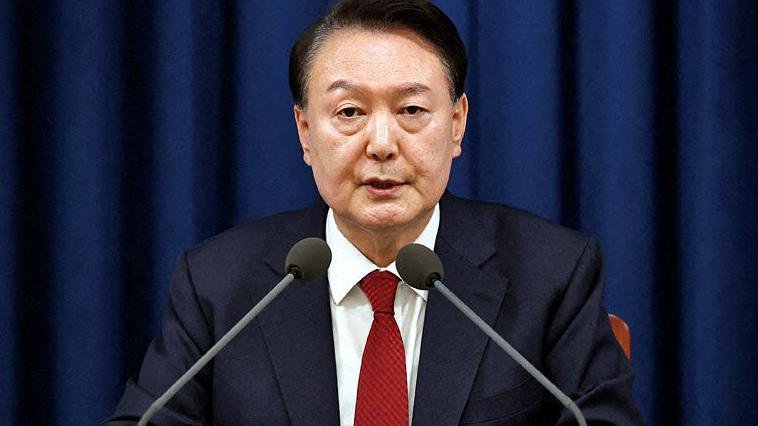President Yoon avoids impeachment as South Korea’s National Assembly narrowly failed to gather the votes required after his martial law declaration. The censure bill, requiring 200 votes for approval, fell short of three votes as most ruling party lawmakers boycotted the session.
On Tuesday, President Yoon Suk Yeol declared martial law to resolve political gridlock, triggering nationwide protests and outrage. Parliament quickly overturned the declaration, and the government backtracked hours later amid mounting public pressure and demonstrations.
People Power Party (PPP) members walked out during the impeachment vote, leaving only three in the chamber. PPP lawmaker Cho Kyung-tae referred to Yoon’s apology as a reason for his choice not to support the impeachment and delegate political agendas.
Kyung-Tae explained his decision, saying the impeachment would hand power to the opposition Democratic Party of Korea (DPK). The DPK, however, vowed to continue its efforts to impeach Yoon, calling him “the worst risk” to South Korea’s Democracy. Speaking to protestors outside the National Assembly, a DPK lawmaker declared their determination to restore normalcy.
Tuesday’s martial law declaration marked the first move since South Korea’s transition to a parliamentary democracy in 1987. Yoon defended his actions as necessary to counter “anti-state forces,” invoking concerns about North Korea. Critics, however, viewed the declaration as an overreach to address a political impasse caused by the opposition’s legislative dominance.
At the National Assembly, there was an outbreak as MPs fought with soldiers to enter the chamber, and protesters were prevented by armed personnel. Yoon’s cabinet lifted martial law in the early hours of Wednesday, but protests have persisted every day since.
South Korea’s martial law controversy deepens as revelations emerge that Yoon gave orders to arrest political rivals and some party allies. After facing backlash, he apologized on Saturday, stating that the decision came from desperation and pledged never to repeat it.









